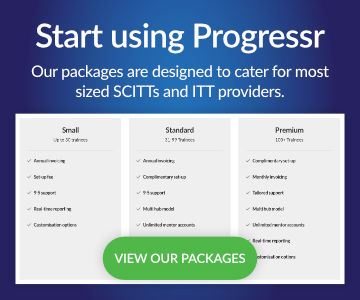Skills and qualities for successful mentorship

This article explores the essential mentorship skills and discusses their significance in becoming a successful mentor.

Why are mentorship skills important?
Mentoring skills are important, they help the mentor provide inspiration, knowledge, and guidance to new teachers. Good mentoring skills will help you build a partnership aimed at helping not only the mentee but also you, the mentor, grow and achieve personal and professional goals.
Understanding mentorship skills?
Knowing and understanding key mentorship skills and why they matter is crucial. They help mentors set clear objectives for their mentees, encourage professional development, and ensure effective communication and accountability.
A good mentor uses these skills to guide their mentee in developing new abilities while working towards their goals. Additionally, these skills assist mentors in creating effective methods for goal setting and achievement by considering the mentee’s strengths, experiences, preferences, and values.
Skills and qualities for successful mentorship
Active listening: A mentor should be fully present and engaged when listening to their mentee, asking questions, and identifying nonverbal communication or body language. By practicing active listening you’ll show respect and openness to the trainees’ ideas and concerns.
This approach can also help you provide useful feedback that the individual can use in their career and personal life.
Constructive feedback: Mentors should provide actionable feedback that helps mentees improve and reach their goals. Constructive feedback means looking at how someone is doing, offering helpful advice, and creating plans to assist a trainee. A mentor can give encouraging and useful feedback whenever it’s needed. This type of support can inspire trainee teachers to keep improving their skills as they work towards QTS.
When facing challenges, a mentee can use your constructive feedback to find effective solutions.
Empathy: Do you know how your trainee is feeling? Mentors should be able to understand their mentee’s feelings and concerns by putting themselves in their shoes. This can help mentors communicate well and sense what their mentee needs to hear. As you work on building a relationship, empathy also fosters trust and helps you recognise the trainee’s behaviours and skills, enabling you to provide helpful advice.
Honesty: Mentors should be honest and candid. Honesty is an essential trait for a good mentor, and being truthful with trainees when giving feedback is crucial. A great mentor shares both positive and negative feedback and guides their mentees in making wise choices. This can also mean being open about past struggles, decisions, and experiences.
Flexibility: Mentors should be flexible and value different perspectives when working with their mentees. They must recognise that each person is different and may need different types of support. It’s important for mentors to change their approach and techniques to fit the unique needs of each mentee.
Networking: Mentors can provide valuable connections for new teachers, helping them to expand their professional contacts in education, which can lead to promotions and future job opportunities.
Other mentoring skills
Other skills and qualities that mentors can have include: Building trust, Encouraging, Identifying goals, Instructing and developing capabilities, Inspiring, and Opening doors.
Mentoring teachers contributes to overall organisational success
Together, these benefits can create a positive ripple effect, enhancing workplace culture and employee retention within schools and helping contribute to overall organisational success.
Progressr supports the mentoring and progress of trainee teachers
Progressr provides a platform that supports mentoring of trainee teachers. It is designed to allow experienced teachers (mentors) to provide guidance, advice, and professional development to trainee teachers (the mentees). Progressr tracks each trainee’s progress as they navigate the challenges of teaching and develop their pedagogical skills.




